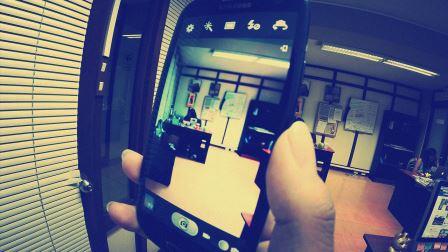What Happens In Your Brain When You Lose Focus
If you’ve ever been in mid-conversation at lunch only to lose your train of thought when your cell phone buzzed, a new study published in Nature Communications offers an explanation of what’s happening in your brain to cause this.
Neuroscientist Adam Aron from the University of California San Diego and postdoctoral scholar Jan Wessel found that the subthalamic nucleus (STN)—the brain system that is involved in interrupting or stopping movement in our bodies—also interrupts cognition. In previous research, Aron identified that the STN is engaged when you make an abrupt stop in action due to an unexpected event.
“A broad stop is the sort of whole-body jolt we experience when, for example, we’re just about to exit an elevator and suddenly see that there’s another person standing right there on the other side of the doors,” he writes in the study.
This new research finds that an unexpected event also appears to clear out what you were thinking. This function of the brain served an important role when humans could be confronted with danger and needed a fight or flight response, but today it has negative consequences.
“Clearly this happens all day long to us,” says Aron. “We’re concentrating at the office, and things go ‘cheep.’ We get distracted, but that’s everyday life. Unfortunately, there’s a big cost to that when it comes to focus, and it’s increasing in this world.”
While the reaction is physiological, you can work to strengthen your focus so that the smaller distractions don’t cause full stops in your thinking. Here are six things that will help you pay attention:
1. Practice Meditation
Just like exercising trains your muscles, meditation trains of your attention, allowing you to stay at attention for longer periods of time. When distractions come, your brain is strong enough to let them go by without engaging them.
A study from Emory University found that 20 minutes of daily meditation is associated with activity and connectivity changes in the region of the brain that controls attention, allowing you to disengage from distraction.
2. Limit The Buzzing From Your Electronics
Take a proactive approach to set up your work space, suggests Nelly Dixon, an applied behavior analysis faculty member at Kaplan University.
“Arranging the environment to limit the likelihood of distracting stimuli can be helpful,” she says. “Turn off audible devices to eliminate the distraction of texts and unimportant phone calls. Turn off notifications on your computer that let you know someone has commented on your Facebook page.”
3. Close Your Door
“Workplace interruptions can cause employees to take up to 27% more time to complete a task, commit up to twice as many errors, and experience up to twice the anxiety,” says A.J. Marsden, assistant professor of human services and psychology at Beacon College.
Help reduce the number of times someone stops by your desk by closing your door. If you don’t have an office, wear headphones, which can signal to your coworkers that you are unavailable.
4. Take Several Short Breaks
Performance starts to deteriorate after 50-60 minutes of continuous work, but you can reverse this trend by taking rest breaks every 40 minutes, says Marsden.
“Taking breaks helps decompress and relax your overworked brain,” she says. “Short breaks allow people to maintain their focus on a task without losing quality that normally occurs over time.”
5. Forget Multitasking
Multitasking can weaken your ability to focus on one thing. “Our short-term memory can only store between five and nine things at once, so it is hard for your brain to process two coinciding yet separate streams of information and encode them into short-term memory,” says Marsden.
Multitasking decreases concentration by as much as 20% to 40%, she says. “Brain activation is reduced up to 53% when we are asked to perform dual tasks versus being able to devote our attention to just one task.”
6. Get Rid Of Internal Distractions
That nagging feeling of needing to do something can wreak havoc on the ability to focus, says Dixon. She suggests creating a to-do lists that outline and prioritize tasks, and completing extraneous tasks before engaging in a project that requires higher levels of focus and attention.
“[This] can help to reduce the distraction of having to do something else from lingering in the back of one’s mind,” she says.
Fast Company , Read Full Story
(103)


